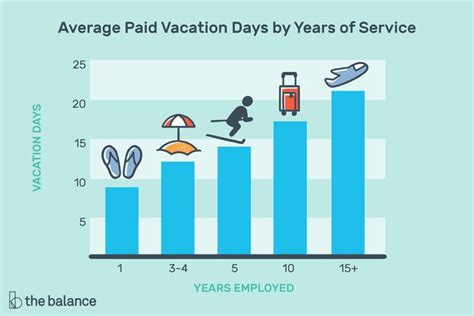Mastering The Basics: Paid Vacation Day Essentials

Did you know that taking a vacation can actually boost your productivity and improve your mental and physical health? Despite the benefits, many employees often hesitate to take time off because they’re worried about falling behind on work or missing out on opportunities. However, taking paid vacation days is not only important for your well-being, but it’s also a basic employee benefit that you’re entitled to as part of your job. In this post, we’ll cover everything you need to know about paid vacation day essentials, from understanding your rights to making the most of your time off.
1. Know Your Rights
Before you start planning your next vacation, it’s important to understand your rights as an employee. In the United States, paid vacation days are not required by law, but many employers offer them as a benefit. The amount of paid vacation time you receive can vary depending on your job, your employer, and the state you work in. Make sure to check your company’s policies and your employment contract to understand how much vacation time you’re entitled to.
1.1 Understand Your State Laws
Some states have their own laws regarding paid vacation time. For example, California requires employers to provide paid vacation time to their employees, while other states don’t have any laws regarding vacation time. Make sure to research your state’s laws and regulations to understand your rights as an employee.
1.2 Know Your Accrual Rate
Accrual rate refers to how much paid vacation time you earn over a certain period of time, such as a week or a month. Your accrual rate will depend on your company’s policies and your employment contract. Make sure to understand how your accrual rate works so you can plan your vacation time accordingly.
2. Plan Ahead
Planning ahead is the key to making the most of your paid vacation days. By planning ahead, you can ensure that your time off is approved by your employer, that you have enough time to prepare for your vacation, and that you’re able to schedule your vacation during a time that works best for you.
2.1 Talk to Your Manager
Before you start planning your vacation, make sure to talk to your manager to get their approval and to understand any limitations or restrictions. This can help you avoid any potential conflicts or misunderstandings down the line.
2.2 Give Plenty of Notice
Make sure to give your employer plenty of notice before you take your vacation. This can help ensure that your time off is approved and that your team is prepared to cover your workload while you’re away.
3. Make the Most of Your Time Off
Once you’ve planned your vacation, it’s time to make the most of your time off. Whether you’re taking a staycation or traveling to a new destination, there are plenty of ways to make the most of your paid vacation days.
3.1 Disconnect from Work
One of the biggest advantages of taking paid vacation days is the opportunity to disconnect from work and recharge your batteries. Make sure to turn off your work email and phone notifications and focus on enjoying your time off.
3.2 Try Something New
Use your vacation time as an opportunity to try something new, whether it’s exploring a new city, taking a cooking class, or trying a new hobby. This can help you recharge and come back to work feeling refreshed and inspired.
4. Frequently Asked Questions
4.1 How many paid vacation days am I entitled to?
The number of paid vacation days you’re entitled to will depend on your job, your employer, and the state you work in. Make sure to check your company’s policies and your employment contract to understand how much vacation time you’re entitled to.
4.2 Can my employer deny my request for vacation time?
While employers generally try to accommodate their employees’ vacation requests, they may deny your request if it conflicts with business needs or if there are too many employees requesting time off at the same time. Make sure to plan ahead and give your employer plenty of notice to increase the chances that your request will be approved.
4.3 What happens if I don’t use all of my paid vacation days?
If you don’t use all of your paid vacation days, you may lose them at the end of the year or at the end of your employment. Make sure to use your vacation days before they expire to avoid losing them.
4.4 Can I use my paid vacation days for sick leave?
While some employers allow their employees to use their paid vacation days for sick leave, others have separate policies for sick leave. Make sure to check your company’s policies and your employment contract to understand how sick leave works at your company.
4.5 Can I take unpaid vacation time?
In some cases, you may be able to take unpaid vacation time if you’ve used up all of your paid vacation days or if you need to take time off for personal reasons. Make sure to talk to your employer to understand their policies regarding unpaid vacation time.
Remember, taking paid vacation days is not only important for your well-being, but it’s also a basic employee benefit that you’re entitled to as part of your job. By understanding your rights, planning ahead, and making the most of your time off, you can ensure that you return to work feeling refreshed, inspired, and ready to tackle new challenges.
